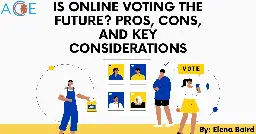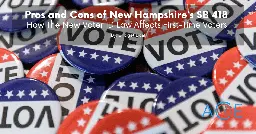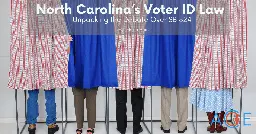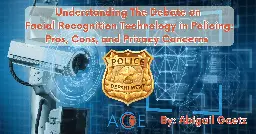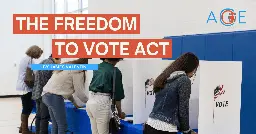Tuesday, November 5th marks Election Day in the United States. As millions of voters cast their ballots, news organizations carefully analyze incoming voting
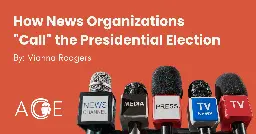
This article dives into the lengthy process behind finalizing U.S. presidential election results and explains why we often don’t know the official outcome on Election Day itself. While media organizations “call” races based on incoming data and projections, these are not the official results. Officially, the winner isn’t confirmed until mid-December, when electors in each state cast their Electoral College votes. This time gap exists due to the need for state-level certification and the variations in how each state counts its votes. For example, some states allow mail-in ballots postmarked by Election Day to be counted days later, causing further delays.
Additionally, the article touches on the Electoral College system, which allocates a different number of electors per state and isn’t based solely on population size. This can lead to discrepancies in representation, where smaller states have proportionally more voting power per elector than larger ones. News organizations analyze trends and historical voting data to predict results, but the actual vote certification doesn’t happen until weeks later.
What do you think about this process? Does the Electoral College seem like an effective system, or do you think it should be reformed? How do you feel about news organizations “calling” races before results are certified? Let me know your thoughts.
Online voting could reshape U.S. elections, making them more accessible and potentially increasing turnout. But security concerns, privacy issues, and trust in results are major challenges. Could online voting lead to higher engagement, or would it create more risks than benefits? Would it increase trust in the election process or deepen skepticism? What’s your take on the future of online voting?
https://ace-usa.org/blog/research/research-votingrights/is-online-voting-the-future-pros-cons-and-key-considerations/
New Hampshire’s SB 418 is stirring up debate on voting access, privacy, and election security. Supporters say it’s essential for election integrity, while critics argue it creates barriers and threatens privacy. With lawsuits challenging the law, could SB 418 reshape how we balance election security with voter access? What are your thoughts—should ID requirements be this strict? And do you think it risks violating voter privacy?
North Carolina’s SB 824 voter ID law is at the center of a heated debate. Supporters say it secures elections, while opponents argue it restricts voting access, especially for marginalized groups. With ongoing legal challenges, could this law shape the future of voter ID regulations across the country? How do you feel about voter ID laws? do they strengthen election security, or do they create unnecessary barriers?
During American presidential elections, news coverage focuses on the “270 to win” count rather than the actual majority of individual votes that candidates

The Electoral College is a deeply debated aspect of U.S. presidential elections. Is it an outdated system that unfairly benefits small states, or does it still provide balance in elections?
In the U.S., elections typically start with party primaries, where members of each political party select their candidates for the general election. There are
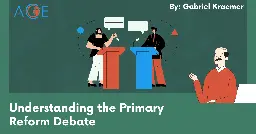
Top-two primary systems are designed to reduce political polarization by allowing the top two candidates, regardless of party, to advance to the general election. However, there are concerns about potential downsides, such as limiting third-party representation and possibly lowering voter turnout. Could this system actually stifle political diversity? Would it lead to more moderate candidates, or could it reduce voter choice? How might this impact heavily partisan districts?
AI is rapidly transforming healthcare, helping with everything from diagnosing diseases to reducing costs and easing physician workloads. But there are real concerns around algorithmic bias and patient data privacy. This article breaks down both the potential benefits and the risks of AI in healthcare. Check it out and join the discussion!
https://ace-usa.org/blog/research/research-publichealth/understanding-the-ai-in-healthcare-debate/
With privacy concerns at an all-time high, do you think a national law like the APRA is the right move? Or does it risk overregulation and undermining states' rights? How do we strike the right balance between protecting consumers and supporting business innovation? I’d love to hear your thoughts.
https://ace-usa.org/blog/research/research-technology/american-privacy-rights-act-pros-cons-and-impact-on-consumer-data-protection/
Facial recognition is becoming a powerful tool for law enforcement, helping to track suspects and solve cold cases faster than ever. But with concerns over privacy, racial bias, and wrongful arrests, is this tech doing more harm than good? https://ace-usa.org/blog/research/understanding-the-debate-on-facial-recognition-technology-in-policing-pros-cons-and-privacy-concerns/
In recent years, significant advancements in neurotechnology promise to profoundly impact healthcare and human capabilities. As technologies such as
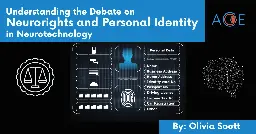
As brain-computer interfaces, deep brain stimulation, and neurostimulation devices evolve, they offer incredible medical advancements—but also raise ethical concerns about personal identity and free will. From treating Parkinson’s to the rise of Neurorights, neurotech is blurring the line between mind and machine. Will neurotech push humanity forward, or are we treading into dangerous territory?
Abortion, defined as a medical intervention to end a pregnancy, has remained a contentious issue in American politics and the judicial system for decades. The
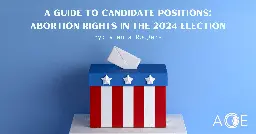
This article breaks down the pivotal issue of abortion rights, covering key figures like Kamala Harris, Donald Trump, Jill Stein, and Cornel West. From federal abortion bans to restoring Roe v. Wade, see how their views could impact the future of reproductive healthcare in America. https://ace-usa.org/blog/election-2024/candidate-comparisons/a-guide-to-candidate-positions-abortion-rights-in-the-2024-election/
In all states except North Dakota, eligible voters must register to vote before casting a ballot in any election. Each state’s voter registration requirements
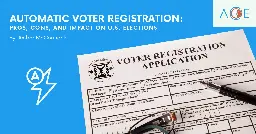
Automatic Voter Registration (AVR) is gaining traction, but is it the key to higher voter turnout or a potential security risk? This article breaks down how AVR works, the arguments for and against it, and its impact on elections. If you're curious about how this policy could shape the future of voting, check out this article.
https://ace-usa.org/blog/research/automatic-voter-registration-a-closer-look-at-the-ongoing-debate/
The Freedom to Vote Act could dramatically change U.S. elections, from expanding early voting and voter registration to reforming campaign finance and tackling gerrymandering. But is it a necessary step to protect voting rights, or does it give too much power to the federal government? This article breaks down the key provisions and the heated debate surrounding the bill. What do you think? https://ace-usa.org/blog/research/research-votingrights/freedom-to-vote-act-pros-cons-and-impact-on-u-s-elections/
Election Day is always held on the Tuesday after the first Monday in November during an election year. Congress codified this tradition in 1845 to account for
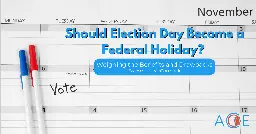
Is it time to make Election Day a federal holiday? 🗳️ Some say it would boost voter turnout and align the U.S. with other democracies, while others argue it could create challenges for hourly workers and cost millions. Dive into the debate over whether a federal voting holiday is the best way to strengthen democracy or if there are better solutions. Check out the full breakdown!
https://ace-usa.org/blog/research/research-votingrights/should-election-day-become-a-federal-holiday-weighing-the-benefits-and-drawbacks/
In regards to term limits of Supreme Court justices, some say that only a constitutional amendment could enforce term limits, as current proposed legislation would be unconstitutional. They argue that the relegation of judges to a new form of senior status (described in past bill proposals) runs afoul to the constitutional provision allowing justices to serve "in good Behaviour", according to Article III Section 1. President Biden supports a system where a President would appoint a justice every 2 years and justices would serve 18 year terms on the Supreme Court.
In regards to term limits, some say that only a constitutional amendment could enforce term limits on Supreme Court justices, as current proposed legislation would be unconstitutional. They argue that the relegation of judges to a new form of senior status runs afoul to the constitutional provision allowing justices to serve "in good Behaviour" in Article III Section 1.
Before Biden exited the race, a Jul 2 poll by Reuters/Ipsos had Harris losing to Trump by 1 point. At that time, the only Democrat polled who beat Trump was Michelle Obama, who had an 11 point advantage over the former president.
Before Biden exited from the race, a Jul 2 poll by Reuters/Ipsos had Harris losing to Trump by 1 point. At that time, the only Democrat polled who beat Trump was Michelle Obama, who had an 11 point advantage over the former president.
If Biden decides to exit the race, he could release all the delegates bound to him, which would allow a new vote for new candidates at the convention in late August.
The Supreme Court ruling grants Trump immunity for his official actions as president, but not for private actions. This amendment by Morelle is in line with President Biden's view on the ruling, who argued that it places no limits on presidential power and effectively makes the president a king above the law.
A Jul 2 poll conducted by Reuters/Ipsos had Kamala Harris losing to Donald Trump by 1 point (42% to 43%) if she were to replace President Biden. The only Democrat who would hypothetically beat Trump according to the poll is Michelle Obama, who would have an 11-point advantage over the former president. However, the former First Lady has expressed several times over the years that she will not be running for president.
